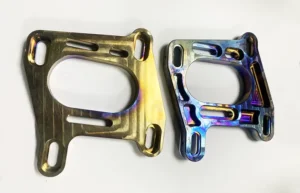
Can a CNC machine magnetize cast iron during machining operations?
Potential Effects of CNC Machining on Cast Iron Magnetization
When it comes to the precision and efficiency of machining operations, CNC machines have revolutionized the manufacturing industry.
However, there are concerns surrounding the impact of CNC machining on the magnetic properties of cast iron.
This article aims to explore the question: Can a CNC machine magnetize cast iron during machining operations?
Basics of CNC Machining
CNC machining involves the use of computer-controlled machines to remove material from a workpiece, creating complex shapes and products with high precision.
These machines utilize various cutting tools, such as end mills and drills, to cut into different materials, including metals like cast iron.
Characteristics of Cast Iron
Cast iron is a ferrous metal alloy that contains a high percentage of iron and carbon. It is known for its excellent castability, machinability, wear resistance, and damping properties.
Cast iron is commonly used in a variety of industrial applications, including automotive, construction, and machinery.
Magnetization of Cast Iron
Cast iron is a ferromagnetic material, meaning it has magnetic properties that can be influenced by external magnetic fields.
While cast iron is not as strongly magnetic as materials like steel, it can still become magnetized under certain conditions.
The Influence of CNC Machining on Cast Iron Magnetization
During CNC machining operations, the cutting tools come into direct contact with the workpiece, generating heat and friction at the cutting interface.
In some cases, this heat and friction can induce a local increase in temperature, causing changes in the microstructure of the material.
When cast iron is subjected to high temperatures, its magnetic properties can be altered.
This is due to the transformation of the material’s crystal structure, which can lead to changes in its magnetic response.
As a result, the cast iron may become magnetized during CNC machining operations.
Factors Affecting Cast Iron Magnetization
Several factors can influence the magnetization of cast iron during CNC machining. These include:
- Cutting Tool Material: The type of material used in the cutting tool can impact the heat generated during machining, affecting the magnetic properties of the cast iron.
- Cutting Speed and Feed Rate: Higher cutting speeds and feed rates can lead to increased heat generation, potentially influencing the magnetization of the material.
- Coolant and Lubrication: Proper coolant and lubrication systems can help dissipate heat and reduce the likelihood of magnetic changes in the cast iron.
- Cutting Tool Path: The path taken by the cutting tool can affect the distribution of heat within the workpiece, influencing its magnetic response.
Testing for Cast Iron Magnetization
To determine if cast iron has been magnetized during CNC machining, various testing methods can be employed. These may include:
- Magnetic Field Testing: Using a magnetic field tester to measure the magnetic flux density of the cast iron before and after machining.
- Magnetic Susceptibility Testing: Measuring the material’s magnetic susceptibility to assess any changes in its magnetic properties.
- Magnetic Permeability Testing: Testing the material’s magnetic permeability to evaluate its ability to become magnetized.
Preventing Cast Iron Magnetization
To mitigate the risk of cast iron magnetization during CNC machining, several steps can be taken:
- Use of Non-Magnetic Cutting Tools: Choosing cutting tools made from non-magnetic materials can reduce the chances of inducing magnetic changes in the cast iron.
- Optimization of Machining Parameters: Adjusting cutting speeds, feeds, and coolant/lubrication systems can help control heat generation and minimize magnetic effects.
- Post-Machining Demagnetization: Employing demagnetization techniques after machining, such as passing the component through a demagnetizing coil.
Conclusion
While CNC machining offers numerous advantages in terms of precision and efficiency, it is important to be aware of the potential impact on the magnetic properties of cast iron.
By understanding the factors that can influence cast iron magnetization and implementing appropriate testing and prevention measures, manufacturers can ensure the quality and integrity of their machined components.




1 thought on “Can a CNC machine magnetize cast iron during machining operations?”
Love how practical the advice is.